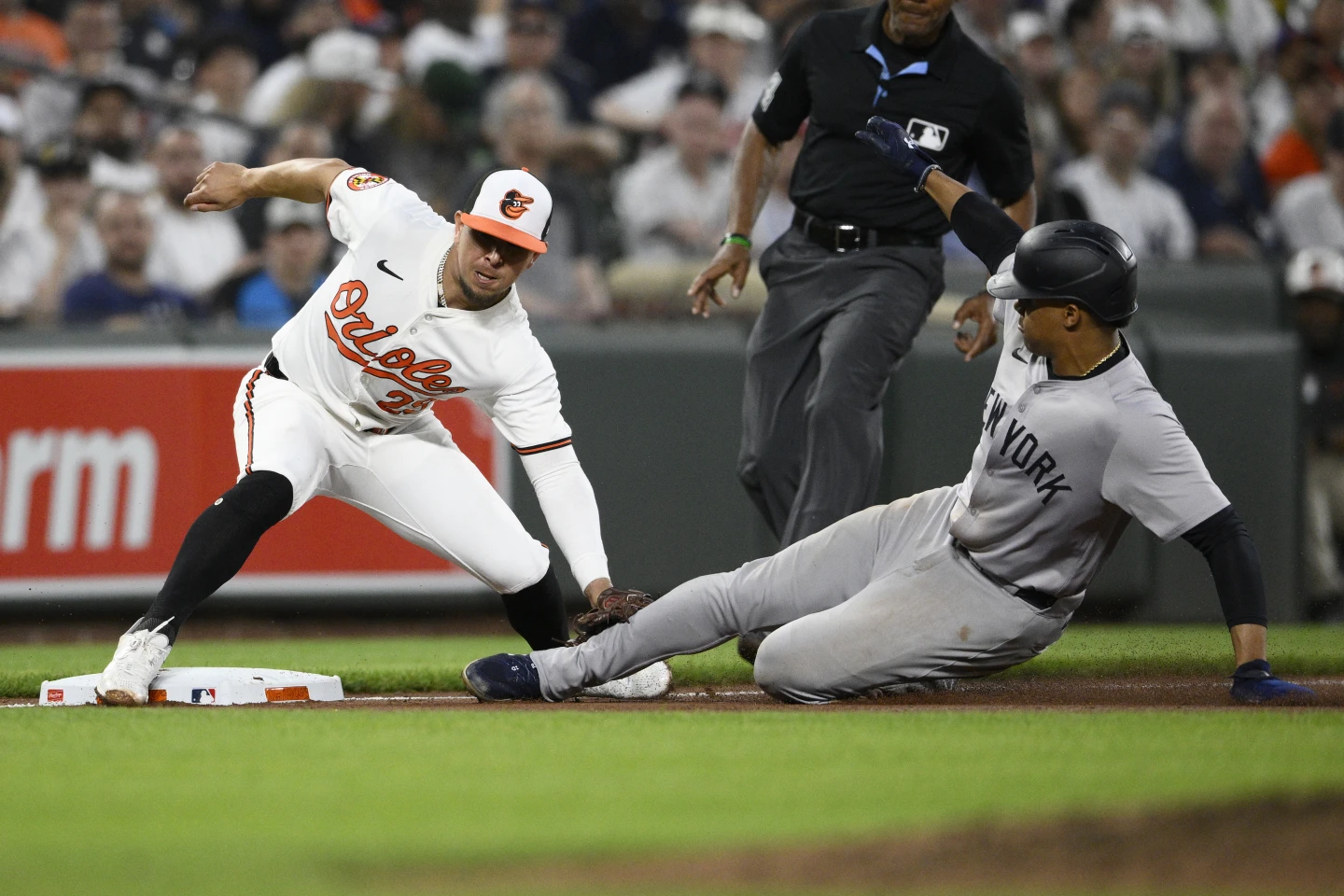The average time for a nine-inning baseball game is 2 hours and 36 minutes during the first month of the MLB season, which is 1 minute less than in 2023, the second year with the pitch clock.
Despite objections from the players’ association, MLB reduced the timer to 18 seconds from 20 when there are runners on base while keeping it at 15 seconds with no runners.
Last year, the average game time increased gradually throughout the season, starting at 2 hours and 37 minutes in April, then reaching 2 hours and 38 minutes in May, 2 hours and 39 minutes in June, 2 hours and 41 minutes in July and August, and finally peaking at 2 hours and 44 minutes in September.
The average game time of 2 hours and 40 minutes last season was 24 minutes less than in 2022, and the lowest since 1985.
Tony Clark, the head of the players’ union, suggests that the pitch clock might have led to pitcher injuries, describing it as a “significant threat to our game and its most valuable asset — the players.”

However, MLB disagrees with Clark’s claim, stating that he overlooks the empirical evidence and long-term trend of velocity and spin increases, which are closely linked to arm injuries.
On April 22, games averaged 2 hours and 22 minutes, the quickest on any day with at least two nine-inning games since 1986, and 7 minutes faster than the quickest day last year.
The time required for pitching changes has decreased by 10 seconds to 2 hours and 36 minutes this year after the clock was lowered to 2 minutes from 2:15 after the pitcher crosses the warning track.
Clock violations have decreased to 0.32 per game from 0.70 through the same number of games last year, and games with no violations have increased to 74% from 52%. The average violation rate declined from 0.38 in the first week of the season to 0.26 in the sixth week.
Colorado, Kansas City, Oakland, and Toronto each have only one violation.
The MLB batting average of .239 is lower than .249 in the first month of last season after the implementation of defensive shift limits. Last year’s average finished at .248.
